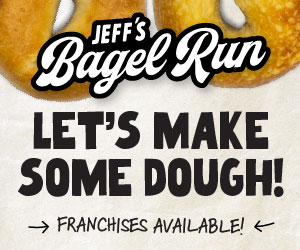Why Your Franchise Sales Process Is a Disaster, Part 3

<Editor's note: This is part 3 of a serialized version of a recent e-book from Franchise Performance Group called Why Your Franchise Sales Process Is a Disaster: What a breakthrough franchise sales process looks like. Click here for part 1, and here for part 2.>
Designing a facilitated buying process: giving the buyer what they want
Our research found that people go through several distinct phases before they buy a business. Smart franchisors know these phases and have organized their franchise sales process accordingly, creating a facilitated investigation and buying process.
Phase One: Self-directed research
The first phase is self-directed, and you don't get any direct access to the buyer during this part. They spend an immense amount of time on your website and on other sites, comparing your opportunity with other opportunities and making some high-level decisions about what their options are. They're limiting their options even before they speak to a franchise salesperson.
To reach those buyers during their self-directed phase, smart franchisors use content to make a concise, compelling case about why their business is unique, profitable, necessary, defensible against competition, and positioned to thrive over the long haul. Smart franchisors earn conversations with online content. Ineffective franchisors think, "If they want the story, they have to talk to me." Then they wonder why no one answers the phone to hear their story. They blame it on the leads: "It must be the leads. We need more and better leads."
Phase Two: Qualification
A franchise buyer wants to know they are qualified before they invest a lot of time in the buying process. They want to know several things right up front. Are they financially qualified? Are they in an area where you're offering franchises? Are there territories available there? Do they have the transferable skills, background, and education to be a successful franchisee in your system? Knowing all this early on benefits the franchisor too, because the franchise salesperson doesn't waste significant time starting a process the franchise candidate can't finish.
Phase Three: Interview and overview/getting to know you
In this phase, the franchise salesperson and franchise buyer will get together by telephone for one hour or less, and the franchise salesperson asks questions designed to get to know the franchise buyer as a person. Zig Ziglar has a saying, "People don't buy drills, they buy holes." They don't want the tools, they want the results. We believe that logic carries into franchising. Franchise buyers do not want a franchise. Not really. What they want is for their life, career ,or investment portfolio to improve - according to their definition of improvement. They want a solution.
The franchise salesperson can't possibly know what the franchise buyer is looking to achieve without this initial phone interview. The salesperson should ask questions about who they are, their transferable skills, their background, what they like and what they don't. Find out what things energize them and what things shut them down. By the end of the call, the franchise salesperson should have identified the franchise buyer's particular brand of genius and how that can translate to success in their franchise model.
One of the key mistakes salespeople make is to skip right from the prequalification call to the webinar. They proceed to "dump" all the features and benefits of their business on the potential buyer in a one-size-fits-all approach - before they know anything about the buyer's reasons for change, what they are looking for in a business, or how the buyer defines worthiness or success. Highly skilled franchise sales people interview first, and then show how the franchise buyer may be able to achieve the results they are seeking, using the business model as a vehicle.
Phase Four: The winning formula
In the phase, franchisors want to educate the franchise buyer on the levers they need to be pulling on a day-to-day basis to make the business model work. Franchisors should demonstrate the tools and processes that drive revenue, retain customers, upsell customers, hire and retain good employees, and ensure that the business is going to be profitable far into the future.
In addition to showing the tools and discussing the nuances of the model, the franchisor also should discuss the franchisee-franchisor relationship, explaining how they work together to add value to the customer's experience and to each other's business. Franchise buyers don't want the franchisor to sugarcoat what the business is or what it takes to win. They want it right between the eyes.
Highly skilled franchise salespeople understand that and will shoot straight, cementing their role as "trusted facilitator of the investigation process." Unskilled franchise sales people want to hear themselves make a pitch, no matter what the wants and needs of the buyer on the receiving end.
Next time: FDD review, validation, and discovery day.
Joe Mathews is a founding partner of Franchise Performance Group, which specializes in franchisee recruitment, sales, and performance. This is an excerpt from his recent e-book. Contact FPG at 615-628-8461 or [email protected].
Share this Feature
Recommended Reading:
| ADVERTISE | SPONSORED CONTENT |
FRANCHISE TOPICS
- Multi-Unit Franchising
- Get Started in Franchising
- Franchise Growth
- Franchise Operations
- Open New Units
- Franchise Leadership
- Franchise Marketing
- Technology
- Franchise Law
- Franchise Awards
- Franchise Rankings
- Franchise Trends
- Franchise Development
- Featured Franchise Stories
| ADVERTISE | SPONSORED CONTENT |








 The franchise listed above are not related to or endorsed by Franchise Update or Franchise Update Media Group. We are not engaged in, supporting, or endorsing any specific franchise, business opportunity, company or individual. No statement in this site is to be construed as a recommendation. We encourage prospective franchise buyers to perform extensive due diligence when considering a franchise opportunity.
The franchise listed above are not related to or endorsed by Franchise Update or Franchise Update Media Group. We are not engaged in, supporting, or endorsing any specific franchise, business opportunity, company or individual. No statement in this site is to be construed as a recommendation. We encourage prospective franchise buyers to perform extensive due diligence when considering a franchise opportunity.